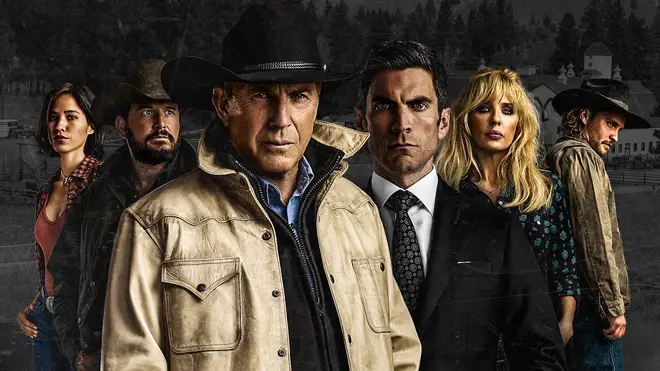
The digital saloon doors swung open with a flourish, not to reveal a dusty cowboy town, but a glossy online storefront. The occasion? A highly anticipated merchandise drop for Yellowstone, the television phenomenon that has captivated millions with its tales of rugged individualism, family loyalty, and the relentless fight for a sprawling Montana ranch. Fans, primed and ready, clicked with the swiftness of a gunslinger drawing his weapon, eager to snag a piece of their beloved Dutton universe. But then, a collective gasp rippled through the digital ether, quickly followed by a chorus of digital groans and a flurry of keyboard-pounding outrage. The reason? John Dutton, the granite-faced patriarch, the very heart and soul of the Yellowstone brand, was conspicuously missing from the coveted line-up of character cutouts.
This seemingly minor oversight – the absence of a cardboard standee – sparked an unexpected fan uproar, a testament not just to the power of a popular show, but to the intricate, often volatile, relationship between creators, brands, and their deeply invested audience. This incident, far from being trivial, illustrates the profound emotional investment fans place in fictional worlds, the symbolic weight carried by a character, and the delicate tightrope brands walk in catering to an audience that feels a genuine, almost proprietorial, connection to their stories.
At the heart of the outcry lies the symbolic power of John Dutton himself. Portrayed with stoic defiance and a deeply ingrained sense of duty by Kevin Costner, Dutton is more than just a character; he is an archetype. He embodies the mythic American West – the land-owner, the protector, the flawed but principled leader. For fans, he represents a certain kind of strength, an unyielding commitment to family and tradition in a rapidly changing world. To own a cutout of John Dutton isn't just to possess a piece of plastic and cardboard; it's to bring a tangible representation of these ideals into one's own space. He is the anchor of the show, the sun around which the entire Dutton universe revolves. His omission wasn't just a product oversight; it felt like a void, an affront to the very essence of what Yellowstone stands for.
The incident further highlights the evolving nature of fandom and the economy of merchandising. In today’s media landscape, merchandise is no longer a mere afterthought; it's an extension of the narrative, a way for fans to deepen their connection, express their allegiance, and even perform their identity. An exclusive merch drop becomes an event, a digital stampede where speed and luck dictate who secures the coveted items. There’s an implicit social contract: if a brand offers a "character collection," the most central, iconic figures are expected to be present. The absence of John Dutton shattered this expectation, creating a feeling of betrayal. It wasn't just a product missing; it was the most important product missing, signaling a potential disconnect between the brand's understanding of its audience and the audience's deep-seated desires.
The ensuing "uproar" was a textbook example of collective fan power amplified by social media. Twitter, Instagram, and Reddit became the digital equivalent of an angry mob with pitchforks and torches, though in this case, the weapons were outraged emojis and blistering comments. Fans voiced their disappointment, bewilderment, and even anger, demanding explanations and, more importantly, the inclusion of their beloved patriarch. This immediate, highly visible reaction served as a potent feedback loop, demonstrating how quickly a perceived misstep can escalate into a public relations challenge. It underscored the fact that in the age of instant communication, brands are held to account not just for the quality of their content, but for the perceived respect they show their dedicated communities.
Ultimately, the Yellowstone merch drop incident illustrates a crucial lesson: in the world of modern entertainment, the emotional stakes are incredibly high. Fans don't just consume stories; they invest in them, weave them into the fabric of their own lives. A character like John Dutton becomes more than fiction; he becomes a symbol, a touchstone. To overlook his significance in a merchandise drop is to underestimate the passion of the fan base, to misjudge the power of symbolism, and to momentarily forget that what seems like a simple product can carry immense emotional weight. The uproar over a missing cardboard cutout wasn't just about a piece of plastic; it was about the missing heart of a beloved narrative, a stark reminder that in the arena of fan engagement, even the smallest details can ignite the biggest fires. And sometimes, it takes a digital stampede to remind everyone who truly owns the ranch.
